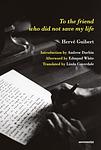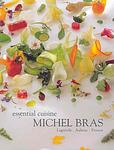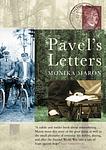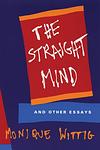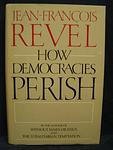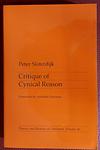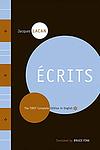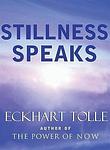The Greatest French, German "Nonfiction" Books Since 1980
Click to learn how this list is calculated.
This list represents a comprehensive and trusted collection of the greatest books. Developed through a specialized algorithm, it brings together 300 'best of' book lists to form a definitive guide to the world's most acclaimed books. For those interested in how these books are chosen, additional details can be found on the rankings page.
Genres
Countries
Date Range
Reading Statistics
Click the button below to see how many of these books you've read!
Download
If you're interested in downloading this list as a CSV file for use in a spreadsheet application, you can easily do so by clicking the button below. Please note that to ensure a manageable file size and faster download, the CSV will include details for only the first 500 books.
Download-
1. The Rings of Saturn by W. G. Sebald
"The Rings of Saturn" is a richly detailed travelogue that follows the narrator's journey along the coast of Suffolk, England. The narrative weaves together history, literature, and personal anecdotes, exploring topics as diverse as the decline of the herring industry, the horrors of colonialism in the Congo, and the life of philosopher Sir Thomas Browne. The book is characterized by its melancholic tone, its digressive style, and its meditative reflections on memory, time, and decay.
-
2. The Emigrants by Winfried Georg Sebald
"The Emigrants" is a novel that explores the experiences and memories of four different emigrants, each with a unique and complex history. The narrative primarily focuses on the psychological impact of displacement and the haunting nature of the past. The author delves deep into their lives, revealing their struggles with identity, loss, and the persistent influence of their roots. The narrative is interwoven with historical events, photographs, and other documents, creating a rich tapestry that blurs the line between fact and fiction.
-
3. To The Friend Who Did Not Save My Life by Hervé Guibert
The book is a candid and harrowing autobiographical novel that chronicles the life of a man grappling with the devastating impact of AIDS during the early years of the epidemic. Through a blend of fact and fiction, the narrative delves into the protagonist's personal experiences with illness, the medical establishment, and the emotional complexities of friendship and mortality. As he confronts his own declining health, the protagonist reflects on the relationships with those around him, including a close friend who is also facing the disease, and the betrayal he feels when a promised miracle cure fails to materialize. The novel is a raw and poignant exploration of the human condition in the face of an unforgiving illness.
-
4. I Will Bear Witness by Victor Klemperer
"I Will Bear Witness" is a chilling personal account of life in Nazi Germany from 1933-1941. The author, a Jewish professor, meticulously details the daily life under Hitler's regime, capturing the fear, oppression, and constant threat that Jews faced. The diary serves as a powerful testament to the horrors of the Holocaust and the resilience of those who endured it.
-
5. Systematic Theology by Wolfhart Pannenberg
"Systematic Theology" is a comprehensive exploration of Christian doctrine from the perspective of a renowned German theologian. It delves into the nature of God, the creation of the universe, and the essence of humanity, among other topics. The author's approach is unique in that he uses historical and scientific knowledge to interpret and explain Christian beliefs, making this a significant contribution to modern theological thought.
-
6. Memoirs by Raymond Aron
The book in question is an intellectual autobiography by a prominent French philosopher and sociologist, chronicling his life from his early years through the tumultuous events of the 20th century. It delves into his experiences during World War II, his observations on the Cold War, and his relationships with other notable intellectuals of his time. The author reflects on his philosophical and political evolution, offering insights into his analytical approach to history, politics, and society. His memoirs serve as a window into the mind of a thinker deeply engaged with the ideological and historical challenges of his era, providing a personal perspective on the broader intellectual currents that shaped the modern world.
-
7. Die Totalitäre Erfahrung by Karl Dietrich Bracher
The book in question provides a comprehensive analysis of totalitarianism, exploring the political and social conditions that give rise to such regimes. It delves into the characteristics of totalitarian states, examining how they gain and maintain power through the manipulation of ideology, the use of terror, and the control of mass communication. The work also reflects on the historical instances of totalitarian governments in the 20th century, offering insights into the dangers they pose to individual freedoms and democratic structures. Through its examination of the dynamics of total control, the book serves as a warning about the fragility of democratic institutions and the constant need to defend them against authoritarian threats.
-
8. Essential Cuisine by Michel Bras
"Essential Cuisine" is a comprehensive guide to gourmet cooking, written by a renowned French chef. The book provides readers with recipes that highlight the chef's innovative and unique approach to cooking, focusing on the use of fresh, local ingredients. The book also includes stunning photography of the dishes and the chef's home region, making it as much a visual feast as a culinary one. It is a must-have for anyone interested in haute cuisine and the art of fine dining.
-
9. Pavel's Letters by Monika Maron
"Pavel's Letters" is a poignant narrative that explores the personal journey of a novelist who uncovers her family's past in war-torn Poland. After receiving a collection of letters from her grandfather, Pavel, the protagonist delves into the history of her family, their experiences during World War II, and the hardships they faced under Stalin's regime. The book is a compelling blend of personal memories, historical facts, and the exploration of the human spirit's resilience in the face of adversity.
-
10. The Theory Of Communicative Action by Jürgen Habermas
The book is a seminal work in social theory that explores the concept of communicative action, where individuals interact based on mutual understanding and pursue rational arguments, consensus, and cooperation rather than merely acting for individual success. The author critiques the instrumental and strategic action in modern societies and argues that communicative action is essential for maintaining the rationality and democratic nature of human interactions. The work delves into the structures of how language and social interaction form the basis of society and how distortions in communication can lead to social issues, emphasizing the importance of transparent and undistorted communication in achieving genuine understanding and societal cohesion.
-
11. The Straight Mind by Monique Wittig
The book is a collection of feminist essays that challenge the conventional understanding of gender and sexuality, positing that the concept of "woman" is a social construct created by a heterosexual society to uphold a binary gender system. The author argues that this system perpetuates the oppression of women and LGBTQ+ individuals by reinforcing the straight mind, a heteronormative way of thinking that marginalizes any form of difference. Through a radical rethinking of language, literature, and social structures, the essays advocate for a new feminist perspective that seeks to dismantle the straight mind and create a society where all forms of identity and expression are valued equally.
-
12. Camera Lucida by Roland Barthes
The book in question is a seminal work in the field of photography theory, blending personal reflection with philosophical investigation. The author delves into the nature of photography, exploring the medium's ability to capture the essence of a moment and its subjects. Through a two-part analysis, the author introduces concepts such as the studium and punctum to articulate the layers of meaning and emotional response elicited by photographs. The work is also a meditation on loss and memory, inspired by the author's search for the essence of his late mother in her photographs. The text is both an intimate journey and a critical examination of the power of images to evoke and preserve the fleeting nature of existence.
-
13. How Democracies Perish by Jean François Revel
This book provides a deep analysis of the threats faced by democracies, specifically from totalitarian regimes. The author argues that democracies are often their own worst enemies, being too tolerant and indecisive, which can lead to their downfall. He further discusses how democracies can be manipulated by totalitarian regimes through propaganda and misinformation. The book serves as a warning and a call to action for democratic societies to recognize these threats and take steps to defend their values and institutions.
-
14. Footsteps by Richard Holmes
"Footsteps" is a captivating blend of biography and travel literature, where the author retraces the journeys of various literary figures to better understand their lives and works. Through his explorations, he follows in the footsteps of authors such as Robert Louis Stevenson, Mary Wollstonecraft, and Percy Bysshe Shelley, visiting the places they lived and wrote about. This immersive approach allows the author to delve deeply into the historical and emotional landscapes that shaped these writers, blending rich narrative with scholarly insights to offer a unique perspective on both the subjects and their settings.
-
15. Essays On Music by Theodor Adorno
This collection is a comprehensive anthology of critical essays on the subject of music, written by one of the 20th century's most influential philosophers and social critics. The work delves into the complexities of musical composition, performance, and reception, offering a profound exploration of the social, political, and cultural dimensions of the musical experience. The author critiques the commodification of music in capitalist societies and the way this impacts artistic authenticity and the listener's experience. Through a series of essays, the author examines various genres and eras, from classical to jazz to popular music, applying a rigorous theoretical framework that draws from Marxist thought, sociology, and psychoanalysis to dissect the role of music in modern life.
-
16. Poussières D'étoiles by Hubert Reeves
"Poussières d'étoiles" is a poetic exploration of the cosmos and our place within it, delving into the intricate connections between the universe and the microscopic elements that compose life on Earth. The book weaves together astronomy, physics, biology, and philosophy to illustrate how the atoms that make up our bodies were once part of ancient celestial phenomena. Through accessible language and engaging storytelling, the narrative takes readers on a journey from the Big Bang to the evolution of life, emphasizing the awe-inspiring reality that we are literally made of stardust, sharing a fundamental bond with the vast, dynamic universe around us.
-
17. Stranglehold On Africa by René Dumont
"Stranglehold on Africa" is a critical examination of the post-colonial economic and political challenges faced by African nations. The book delves into the detrimental effects of foreign aid dependency, the exploitation of African resources by Western countries, and the pervasive corruption and mismanagement within African governments. The author argues that these factors have collectively hindered sustainable development and perpetuated a cycle of poverty and underdevelopment. Through a blend of analysis and firsthand observation, the book calls for a reevaluation of international policies and aid strategies, advocating for more equitable and sustainable approaches to supporting Africa's self-sufficiency and growth.
-
18. The Hour Of Our Death by Philippe Ariès
"The Hour of Our Death" delves into the profound and evolving relationship between humanity and death from the early Middle Ages to the present. The book presents a detailed historical analysis of attitudes toward death, revealing how cultural, social, and religious elements have shaped human responses to mortality. It explores the rituals of dying and the customs of mourning, highlighting the transition from a familiar acceptance of death's constant presence in daily life to its modern sequestration and medicalization, which has altered but not diminished its profound impact on the human psyche and society.
-
19. Critique Of Cynical Reason by Peter Sloterdijk
The book provides a deep exploration of cynicism as a pervasive and influential mindset in contemporary society, tracing its evolution from the classical cynicism of antiquity to its modern form, which the author describes as "enlightened false consciousness." The work delves into the philosophical, social, and psychological dimensions of cynicism, examining how it serves both as a defense mechanism and a form of social critique. Through a blend of philosophical analysis, cultural commentary, and historical insight, the book challenges readers to understand and confront the cynical attitudes that pervade modern culture and to consider the possibilities for genuine sincerity and commitment in a seemingly disenchanted world.
-
20. Prisoner Of Love by Jean Genet
"Prisoner of Love" is a non-fiction book that blends memoir, history, and philosophical reflection. It chronicles the author's experiences in the late 1960s and early 1970s among Palestinian fedayeen (guerrilla fighters) and later, in the mid-1970s, with the Black Panthers in Jordan. The narrative delves into the daily lives of these revolutionaries, their struggles, and the author's own reflections on issues of love, loyalty, and identity. Through his immersive and poetic prose, the author explores the complexities of political commitment and the human condition, offering a deeply personal yet universally resonant account of solidarity and resistance.
-
21. Capital in the Twenty-First Century by Thomas Piketty
This book provides a comprehensive analysis of the dynamics of capital accumulation and distribution over the last few centuries. The author argues that the rate of capital return in developed countries is persistently greater than the rate of economic growth, leading to high levels of wealth inequality. The book further suggests that the level of income inequality is not primarily a result of differences in individual labor income but rather the result of differences in capital ownership and the income derived from it. The author proposes a global tax on wealth to prevent soaring inequality.
-
22. Capitalism, Socialism, Ecology by Andre Gorz
In "Capitalism, Socialism, Ecology," the author explores the complex relationships and conflicts between economic systems and environmental sustainability. He critically examines the failures of both capitalism and real-existing socialism in addressing ecological crises, arguing that neither system is adequately equipped to tackle the environmental challenges of our time. The book advocates for a new ecological order that transcends traditional economic paradigms, proposing a radical restructuring of societal values and economic practices to prioritize sustainability, social justice, and human well-being over profit and growth. Through this analysis, the author contributes to the broader discourse on environmental politics and the search for viable alternatives to unsustainable economic models.
-
23. Écrits: The First Complete Edition in English by Jacques Lacan
This book is a comprehensive collection of essays by a renowned psychoanalyst, offering readers an in-depth understanding of his theories on human psychology. The author delves into complex topics such as the unconscious, the mirror stage, and the concept of the Other, while also exploring the intersection of psychoanalysis with philosophy, linguistics, and anthropology. The book challenges conventional understanding of subjectivity and identity, making it a seminal work in the field of psychoanalysis.
-
24. Stillness Speaks by Eckhart Tolle
The book is a guide to discovering profound inner peace and serenity through the power of mindfulness and stillness. It delves into the transformative potential of living in the present moment and disengaging from the constant chatter of the mind. The author presents a series of meditative insights and wisdom that encourage readers to connect with the depth of the present moment, transcending ego-driven thoughts and emotions. By embracing stillness, the book suggests that individuals can access a deeper sense of self-awareness, leading to a more fulfilling and enlightened existence.
-
25. The Invention Of Nature: Alexander Von Humboldt’s New World by Andrea Wulf
"The Invention of Nature" is a biographical account of Alexander von Humboldt, a 19th-century explorer, scientist, and naturalist who revolutionized the way we understand the natural world. Andrea Wulf chronicles Humboldt's travels across South America, his encounters with indigenous peoples, and his groundbreaking scientific discoveries that challenged prevailing notions of the natural world. Humboldt's ideas about interconnectedness and the unity of nature were ahead of their time and continue to influence environmentalism and conservation today. Wulf's book is a masterful exploration of one of history's most fascinating and influential figures.
Reading Statistics
Click the button below to see how many of these books you've read!
Download
If you're interested in downloading this list as a CSV file for use in a spreadsheet application, you can easily do so by clicking the button below. Please note that to ensure a manageable file size and faster download, the CSV will include details for only the first 500 books.
Download

